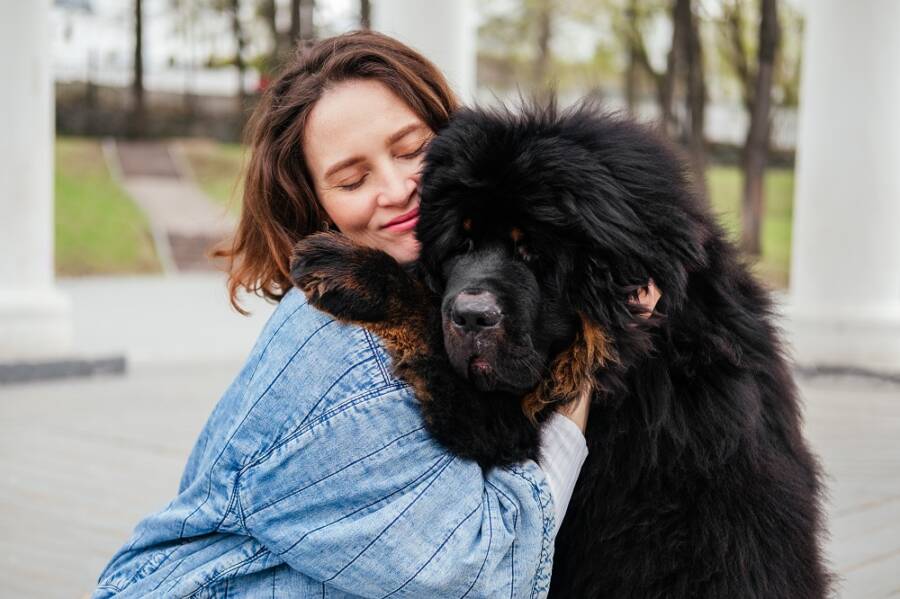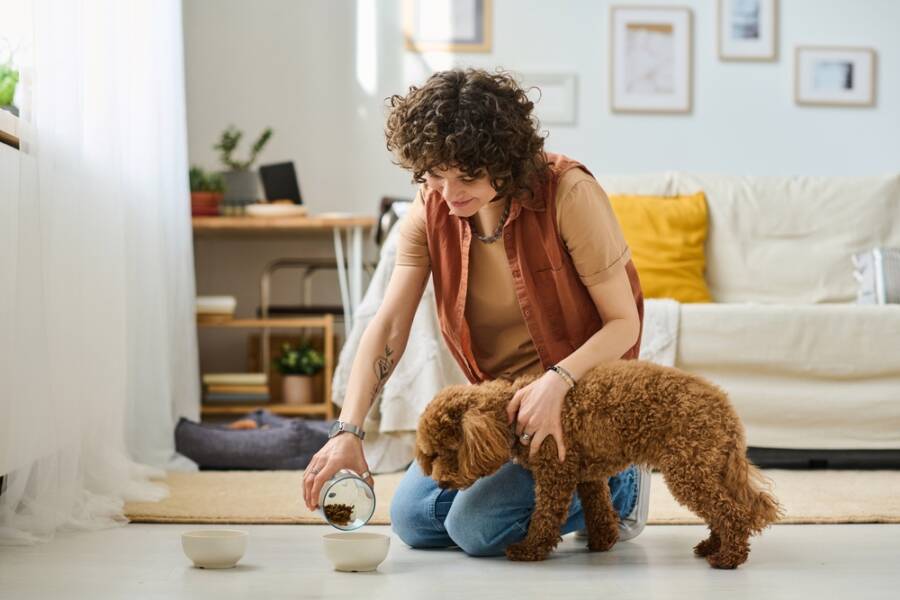Having a pet can definitely benefit older adults for many different reasons. However, there are still plenty of considerations for your care receiver, especially when it comes to pet ownership. Some of these considerations also include the older adult’s health status, level of independence, safety requirements, lifestyle, as well as abilities.
There are plenty of pros, cons, and other factors to consider when it comes to deciding whether or not adopting a dog or a cat is a good fit for an older adult. We decided, naturally, to start with the pros of it, and then we will discuss why you shouldn’t rush into such a decision.

You develop healthier habits, such as spending more time in fresh air and exercising
Since dogs, for instance, require daily exercise, this would automatically encourage owners too to get out and about. In fact, not only does this have a long list of positive benefits for mobility and general health, but it also increases social interaction and decreases loneliness, which is oftentimes a much bigger health issue as we advance in age.
Hence, what could initially seem like a small chat over the garden wall when you look for your cat or in the park when you walk the dog can be way more significant for your mental and physical health.
Studies focused on walking discovered that retirees with dogs were way more likely to meet their recommended daily physical activity goals than others in the same age group. We’re all aware of the power of exercise for keeping or improving our overall health.
However, staying active has its own set of advantages for older adults, such as combating age-related diseases such as dementia and cancer. Owning a dog or a cat is often associated with reduced stress levels, lower blood pressure, and healthier cholesterol levels. Pet owners have a higher rate of recovery from illness.
Improves cardiovascular health
Did you know that the American Heart Association did research looking at how owning pets affects your chances of developing cardiovascular disease (CVD)? Such conditions could affect your heart as well as your blood, like a stroke or coronary heart disease.
Moreover, researchers discovered that having a pet (particularly a dog) is often associated with reduced chances of developing CVD. Even if there’s still plenty of research needed to confirm it, it has been also found that cats can help improve your heart health.
There’s also a follow-up study conducted by the American Heart Association which proved that having cats is associated with reduced chances of dying from CVD, especially strokes. They also emphasized that it’s not just the exercise associated with having a pet that helps you. It’s stress relief and companionship that bring a lot of physical benefits.
Benefits mental health
First, it’s worth mentioning that caring for a pet can definitely improve an owner’s sense of overall wellness and self-esteem. Plenty of pet owners admit that having a pet as a companion has proven to have a calming effect, mainly because interactions with a pet can easily elevate an owner’s levels of serotonin and dopamine, which are nerve transmitters that boost a pleasurable and soothing effect.
Pets are also constant companions, bringing welcome relief from the adverse effects of loneliness as we get older. Especially during the COVID-19 pandemic, the more we spent our free time at home with little or no regular social contact, the more it helped to have a furry friend to interact with.
This goes even more for shy individuals or even those who live with social anxiety. For them, owning a pet can improve their social health. Oftentimes, a pet can act as an icebreaker for conversation, as others are unable to resist inquiring about or even interacting with a cuddly animal.
Regular socialization is the key to retirees’ emotional and cognitive health, increased opportunity for conversation as well as connection that can help an older pet owner. Pets can provide their owners with much-needed motivation to rise in the morning, as well as a feeling of being needed.
They can also bring a sense of purpose and routine to the day, which could otherwise be a lot more empty after employment has come to its end, adding to intricate feelings of mental wellness.
Cons: they are a long-term commitment
The well-known phrase “dogs are for life, not only for Christmas” is mentioned again for good reason. They often represent a long-term commitment and deserve plenty of attention. When you adopt or buy a dog, you are only responsible for its health, exercise, and happiness for the rest of its life.
If you get a younger dog, you will probably need to have it trained, which can be even more difficult and expensive. So before you rush into such a decision, you should ask yourself if you really have enough time to look after another living being. After all, dogs are known to be social animals that demand a lot of attention.
They can be quite messy
You’d be surprised to find out that it’s in a dog’s nature to be on the messy side. They often shed their fur, eat their food quite messily, drool on the furniture, and prefer nothing more than rolling in the mud and other interesting (but at times, funky) smells.
Even if this is just the typical behavior of a dog, it could point towards bad news when it comes to the cleanliness of your home. If you want a dog and you’re worried about the mess, it might be worth giving them their own space in your home. Doing so will help you worry only about a certain area of your house.

They come up with additional costs
One of the main issues worth considering before you adopt a dog is the additional costs it might take. This can be anything from food, insurance and vet bills to toys and many other things. These costs can rapidly add up.
Moreover, research from the PDSA proved that, throughout their lives, dogs cost anywhere between $5,000 and $9,000 for small breeds, between $6,600 and $10,400 for medium breeds, and between $5,400 to $12,200 for larger breeds. The overall estimated costs above don’t involve the vet bills, so if you go for an older dog, there’s a chance for even higher expenses.
They are bound to create a tie
If you want to travel the world during retirement, a dog could represent a limit to such ambitions. You will miss them, they will miss you, and the ordeal can prove to be quite stressful for them. Naturally, some holidays, such as road trips, are quite suitable for dogs, even if additional challenges and preparations need to be considered before you can take them along with you.
Choosing the right pet
If you decide to adopt a pet, you need to go for one that fits your lifestyle and ability to care for it. This set of careful considerations can help older adults and their caregivers feel more confident and prepare for all the responsibilities that come with owning a pet. It’s also important to consider the pet’s size, energy level, grooming needs, as well as the owner’s living situation and physical capabilities.
If you found this article insightful, we also recommend checking 5 Extremely Dangerous Christmas Objects You Should Keep Away From Your Dog















